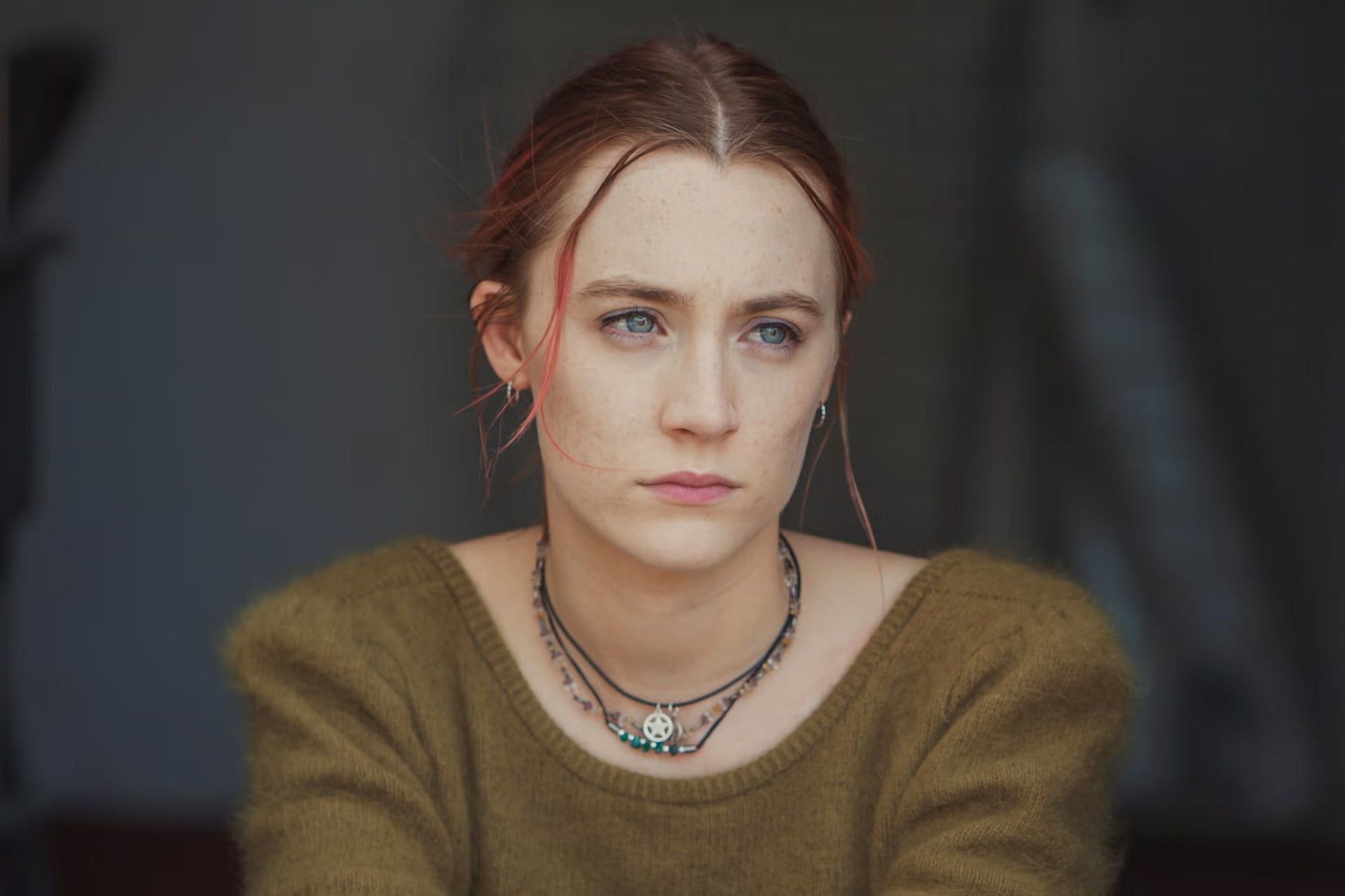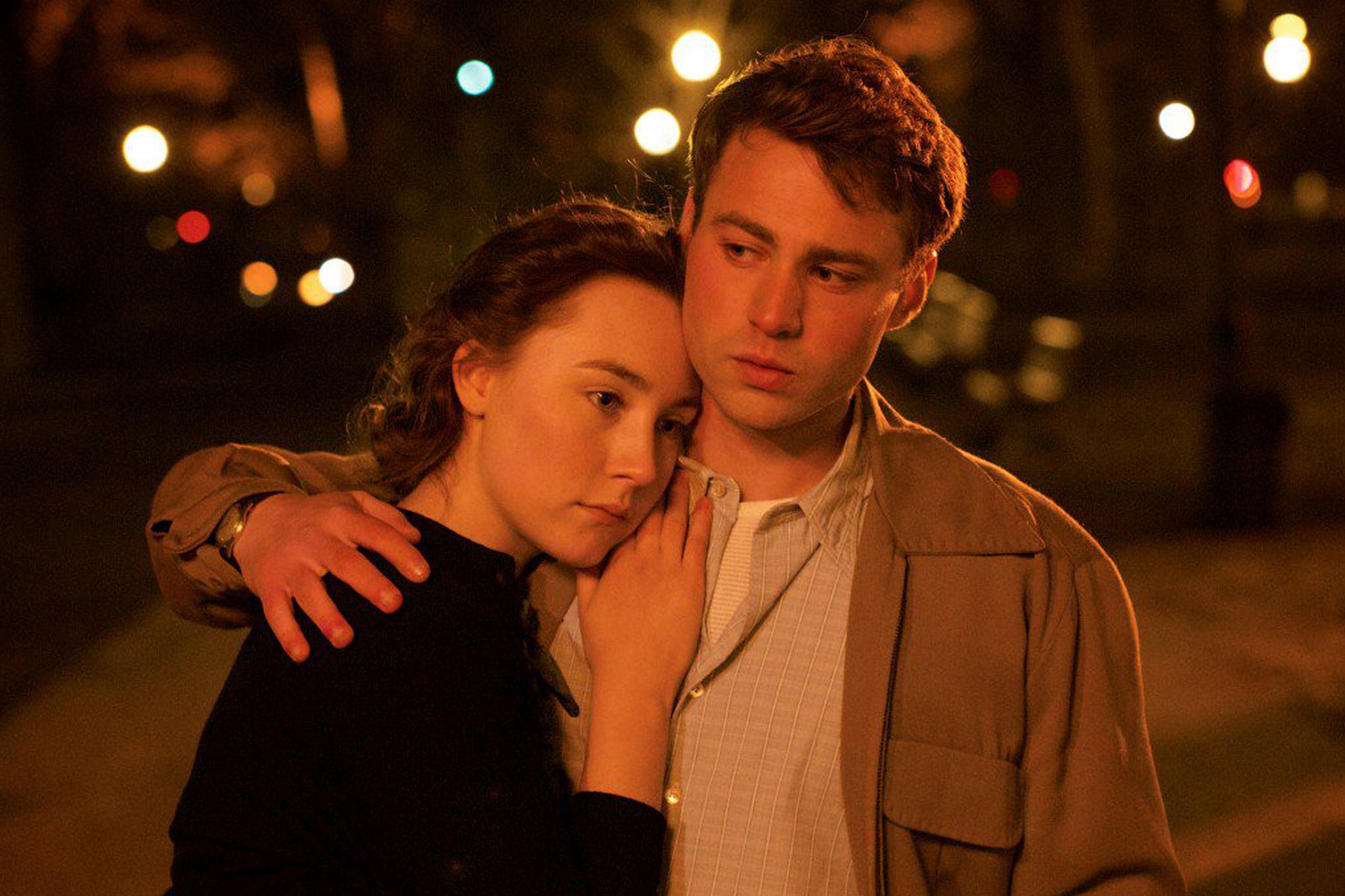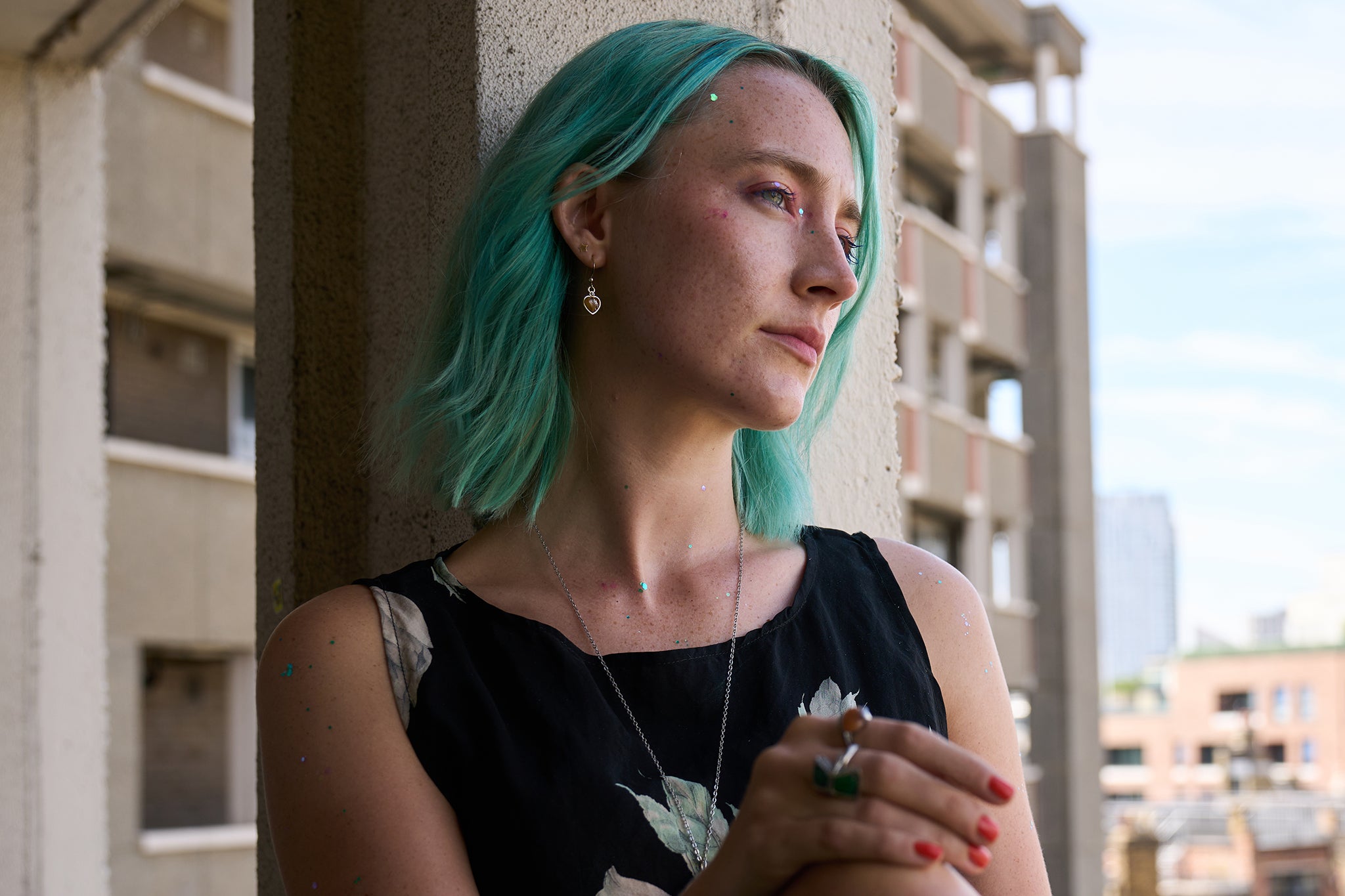Lady Bird takes flight: How Saoirse Ronan became the most thrilling actor of her generation
The Irish star of ‘Little Women’, ‘Lady Bird’ and ‘Brooklyn’ isn’t yet 30 but has already accumulated four Oscar nominations, while her new movie ‘The Outrun’ is already being tipped for awards next year. Geoffrey Macnab looks back on the impressively diverse career of a gifted child actor who grew up to be a consistently daring talent

Meryl Streep was 29 when she received her first Oscar nomination. Saoirse Ronan is now the same age – and already has four of them. The Irish actor, acknowledged by the Academy for her roles in Atonement, Brooklyn, Lady Bird and Little Women, is a disconcerting figure. She doesn’t seem like a big name movie star. The paparazzi occasionally come after her (“Ronan looks jaw-dropping in daring outfit in rare red carpet appearance,” the Irish Sun wrote when she turned up recently at a gala event in Hollywood), but she is hardly a fixture in the gossip columns. Much of the public still struggles to pronounce her first name (it’s “Sur-sha”).
It appears to be by design. Despite all the accolades she has received, Ronan continues to appear primarily in offbeat indie pictures. She almost had a cameo in her friend and mentor Greta Gerwig’s smash hit Barbie. That fell through. Instead, she can be seen currently alongside Paul Mescal in Garth Davis’s sci-fi thriller Foe, which received patchy reviews.
In a few weeks, she will be at the Sundance and Berlin film festivals with her latest daring choice: The Outrun. Made by German director Nora Fingscheidt, this is an adaptation of Amy Liptrot’s memoir of the same name. The story follows a young woman with severe drug and alcohol issues who leaves London, straight out of rehab, for the Orkney Islands, where she grew up. There she hopes to piece her life back together.
“Saoirse has an incredible naturalistic acting talent, mixed with her unusual beauty,” Fingscheidt tells me. “But then there is this magical ‘something’ that she has which is hard to explain: even if she brushes her teeth, it is fascinating to watch on a screen.” It’s true: there is something mercurial about her that audiences find endlessly intriguing.
The Outrun offers yet another of Ronan’s portraits of a spiky and troubled outsider. Regardless of the setting, whether she is cast as the doomed Mary, Queen of Scots in the 2018 historical biopic of that name, or as the Californian high school student chafing against her background in Gerwig’s Lady Bird (2017), she often plays rebellious figures, trapped in worlds they are striving to change or escape.
The mould was set right at the beginning of her career, when Ronan was cast in her breakthrough role in Joe Wright’s Atonement (2007). Her character, the 13-year-old Briony Tallis, is first seen at the typewriter, putting the finishing touches to her new play, The Trials of Arabella. She’s a brisk, earnest and precocious upper-class teenager with an unfortunate knack for misinterpreting adult behaviour. Briony is living in splendour in an English country house in the 1930s. But she can’t quite make sense of the relationship between her older sister, Cecilia (Keira Knightley), and a handsome young gardener, Robbie (James McAvoy). Nuances of sex and class are beyond her comprehension. When she misinterprets and then lies about an incident involving Cecilia and Robbie, she causes huge damage.

It was instantly obvious that Ronan was a complete natural on-screen. She combined a forceful personality with charm, wry humour and a strange inscrutable quality. In the early scenes of Atonement, she is shown marching purposefully through the house, telling anyone who will listen that she has finished her play and commanding them either to appear in it or to watch it.
“We were sent this tape of this little girl speaking in this perfect 1920s English accent,” Wright told Vanity Fair in 2017. “Immediately, she had this kind of intensity, dynamism and willfulness. When we got her to come over to London to meet and read with us, I was shocked to discover this little Irish kid who spoke with a thick Irish accent. I thought maybe there’d been a mistake. And then I sat down to read with her, and as soon as she started reading, I realised she was an extraordinary talent.”
In Atonement, Briony is continually seen lurking in the shadows, spying or eavesdropping on her older sister. She is both fascinated and disgusted by the young lovers. These are complex emotions for an experienced actor to capture, let alone a child. Yet Ronan carried off the role superbly.
Atonement wasn’t Ronan’s debut. She had already appeared in Amy Heckerling’s 2007 straight-to-video romcom I Could Never Be Your Woman as Michelle Pfeiffer’s daughter. The film did badly – “a desperately unfunny mix of tepid showbiz satire and formulaic romantic comedy” was Variety’s verdict – but Ronan still registered strongly as the girl “growing up too fast”.
Movie history is littered with stories of child stars whose careers wither the moment they enter adolescence. Ronan had her own struggles. “There was a weird stage when I was a teenager,” she told journalist Lynn Hirschberg in 2020, “where you can’t do the coming-of-age thing so much any more, you can’t be the kid, but you’re not a woman either. People in the film industry maybe knew me a little bit, but I wasn’t a bankable actor by any means.”

It quickly became apparent, though, that she was just as effective playing rebellious adolescents as she had been playing doe-eyed kids. John Crowley’s Brooklyn (2015), adapted from Colm Tóibín’s novel, was a transformative, deeply personal project for her. Ronan was born in New York – she moved to Dublin at the age of three – to parents who’d left Ireland to build a new life in the Big Apple. Her character in the film does the same, moving from County Wexford to New York. At first, she is completely adrift, lost and homesick, but she soon begins to blossom.
Ronan has talked about “hiding behind” accents. In Brooklyn, for once, she was playing an Irish character. This was also one of the first movies in which she wasn’t just the daughter, the sister or the sidekick. She had already worked with several directors of Oscar-winning films – Peter Jackson (2009’s The Lovely Bones), Kevin Macdonald (2013’s How We Live Now), Neil Jordan (2012’s Byzantium) and Wes Anderson (2014’s The Grand Budapest Hotel) among them – but Brooklyn established her as the dramatic lead in an award-winning movie.
Ronan was even better as Christine, the teen rebel of Gerwig’s Lady Bird. Her character again combined confidence and insecurity. She is a bright young woman in her final year of school and stuck in a dead-end California town. She dreams of escaping and going to an Ivy League college, but everyone from her parents to her career advisers scoff at her ambition.

One reason the movie was such a hit was that audiences related so easily to her. Christine, who gives herself the nickname “Lady Bird” in an attempt to reinvent herself, wasn’t some impossibly aloof movie brat, but was approachable and funny. Not that she was bland, either. Any young people with an attritional but loving relationship with their parents could identify with the bickering with her mother (Laurie Metcalf). And even if they haven’t grown so exasperated over being scolded that they leap out of a moving car – as Christine does in a famous scene in the film – it’s likely they’ve wanted to.
To understand even better the sheer force of Ronan’s personality and charisma, watch her as the aspiring young writer Jo March in Gerwig’s Louisa May Alcott adaptation, Little Women. Jo is one of four sisters living in 1860s Massachusetts, in what Gerwig described as a “glorious female utopia” with their self-sacrificing mother, Marmee (Laura Dern). The Civil War is raging. Their father is away fighting. Money is tight and food is scarce. Yet the family seems blissfully happy.
The film opens with a scene set a few years later. Jo is trying to sell one of her stories to a magazine, the “Weekly Volcano”. The editor (Tracy Letts) is skim-reading her text, discarding some pages, laughing at some, scrawling through others. Jo sits in front of him on tenterhooks, looking ever more disconsolate – until the editor surprises her by accepting the story. The scene is very brief but, in a few moments of screen time, Ronan is still able to register many contrasting emotions: wariness, hope, disappointment and finally exhilaration. She is by far the strongest-willed of the sisters, rejecting a proposal of marriage from friend Laurie (Timothée Chalamet) and refusing to sign over the copyright to her book. Ronan brings a warrior-like fierceness to the role, while also showing Jo’s humour and warmth.

In the 16 years since Atonement, Ronan has taken on every kind of role imaginable, from doomed queens and Victorian-era lesbians (2020’s Ammonite), to prim 1950s policewomen (last year’s See How They Run). She has done tragedy, comedy, vampire horror and sci-fi. She even has her own production company, Arcade Pictures, which she runs with her partner Jack Lowden and producer Dominic Norris.
“Saoirse is very easygoing and wonderful to work with, as a producer as well as an actress,” Fingscheidt says. “She is always open and curious to explore different ways of a scene, but she also is very clear about what feels right and what feels wrong.”
The Irish star isn’t yet 30. She has a long way to go to match Streep’s 21 Oscar nominations (and three wins), but has plenty of time to get there. And The Outrun, which Sundance programmers have already heralded for its “heartbreaking, humane” central performance, looks set to be yet another film sending her right back into the awards frame.
‘Foe’ streams on Prime Video from 5 January, and ‘The Outrun’ premieres at the Sundance Film Festival on 19 January, followed by screenings at the Berlinale, which runs from 15 to 25 February






Join our commenting forum
Join thought-provoking conversations, follow other Independent readers and see their replies
Comments